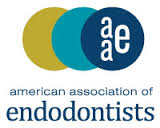What Are Bruxism And TMJ Disorder?
While bruxism and TMJ disorder often occur together, they refer to two separate issues. With that said, leaving one untreated can make the onset of the other more likely.
- TMJ disorder refers to trouble with your jaw alignment and movement. If the joints are not moving in alignment, the tension can cause pain, limit movement, and even trigger discomfort in your face, neck, and head.
- Bruxism refers specifically to issues with unconscious teeth grinding and clenching. Because people with this issue often engage in these habits while asleep, it is difficult to control without help, and it can do serious harm to teeth.
Both of these issues can be treated through appliance therapy. Custom-made appliances can help reposition the jaw, and they can also create a barrier that protects against the effects of grinding and clenching.
How Can I Tell If I Need Treatment?
Jaw pain and stiffness can warn you that you have an alignment issue. If you lose the ability to comfortably bite and chew, experience more frequent headaches, or develop discomfort in your face, neck, and shoulders, issues with your TMJs may be responsible.
Jaw and dental discomfort, particularly in the mornings, can point to issues with bruxism. Another sign of teeth grinding is a change in teeth, as they can take on a flattened or misshapen look. In some cases, patients will notice that they have chipped or cracked enamel.
Talk To Modern Dentistry Of Shrewsbury About Bruxism And TMJ Disorder Treatment
Take signs of trouble with your jaw health seriously! The sooner you seek treatment for bruxism and/or TMJ disorder, the sooner you respond to the cause of daily aches and pains and protect your smile. For more information, call Modern Dentistry Of Shrewsbury at 508-842-8838.











